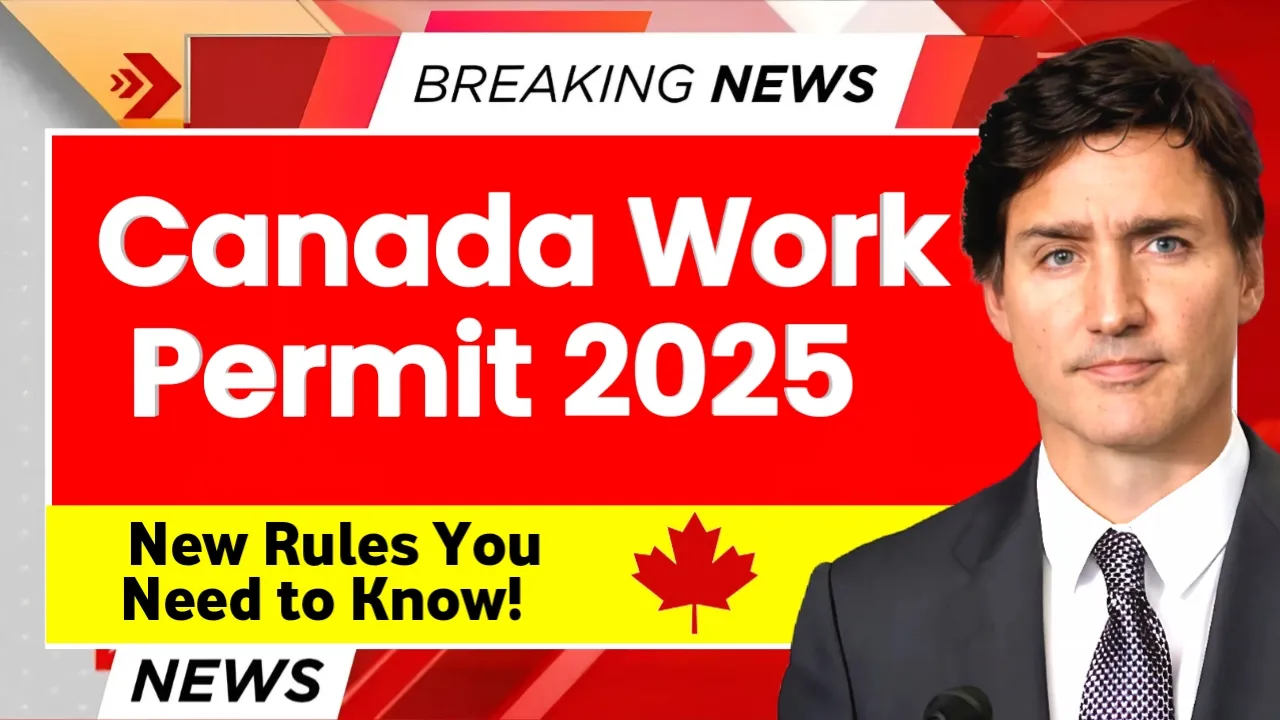In 2025, Canada introduced significant changes to its work permit system, providing new opportunities for individuals to work in the country without needing an employer’s involvement. This includes options like Open Work Permits, Self-Employed Visas, and Provincial Nominee Programs (PNPs). With updated eligibility criteria and expanded pathways, these new rules make it easier for foreign workers, freelancers, and self-employed individuals to find employment opportunities in Canada.
This article will explore the new Canada work permit rules, including who is eligible, the application process, and the best pathways for obtaining a work permit without an employer’s support.
Canada Work Permit 2025: Key Changes and Updates
Canada has long been a popular destination for skilled workers and those seeking new career opportunities. The updated Canada Work Permit 2025 rules reflect the country’s ongoing efforts to attract talented individuals to fill key roles.
Under the new rules, individuals can now pursue work opportunities through several alternative pathways such as Open Work Permits, Self-Employed Work Permits, and PNP programs. This provides more flexibility for those who want to work in Canada without securing a job offer before applying.
Open Work Permits (OWPs) – A New Avenue for Working in Canada
An Open Work Permit (OWP) allows foreign nationals to work for any employer in Canada without the need for a job offer or Labor Market Impact Assessment (LMIA). This option is ideal for individuals looking for flexibility, including spouses of international students, temporary foreign workers (TFWs), and self-employed individuals.
Recent Changes to Open Work Permits in 2025:
- Spouses of International Students: Spouses of students enrolled in master’s, doctoral, or professional degree programs lasting 16 months or longer are now eligible for OWPs. Spouses of students in undergraduate or diploma programs are no longer eligible.
- Spouses of Temporary Foreign Workers (TFWs): Spouses of TFWs in high-demand jobs (TEER 0, 1, 2, or 3) with at least 16 months left on their work permit can apply for an OWP.
- Extended OWPs for Alberta, Manitoba, and Yukon: Foreign workers with support letters from these provinces can apply for up to two years of an OWP.
Self-Employed Work Permits for Freelancers and Entrepreneurs
Canada’s new rules also extend opportunities for self-employed individuals, allowing them to apply for work permits under the Self-Employed Persons Program. This program is designed for freelancers, artists, and entrepreneurs who are contributing to Canada’s economy and cultural landscape.
Who Can Apply?
- Freelancers in fields like photography, IT, digital marketing, and more.
- Artists, sports professionals, and consultants with substantial experience and international recognition.
- Entrepreneurs aiming to start their own businesses in Canada.
Provincial Nominee Programs (PNPs) – Work Permits Before Permanent Residency
The PNP pathways have also been updated to allow workers to apply for a work permit while waiting for permanent residency approval. Certain provinces, such as Alberta, Manitoba, and Saskatchewan, have implemented public policies to facilitate work permits for PNP candidates.
2025 Temporary Public Policy:
If you are nominated by a province and have a support letter, you can apply for a work permit while your permanent residency application is in process. This makes it easier for skilled workers to start working in Canada before their PR status is finalized.
International Experience Canada (IEC) – Working Holiday Visa
The IEC Working Holiday Visa allows young professionals (aged 18-35) from select countries to work in Canada without employer sponsorship.
This open work permit is available to citizens from countries with bilateral agreements with Canada, such as France, Germany, Australia, and the UK.
How to Apply for a Canada Work Permit Without Employer Sponsorship
The process for applying for a Canada work permit without employer sponsorship involves a few simple steps:
- Determine Your Eligibility: Identify the most suitable pathway for your situation (e.g., Open Work Permit, Self-Employed Work Permit, PNP Work Permit).
- Prepare Required Documents: A valid passport, Proof of educational qualifications (if applying for PGWP or PNP), Proof of funds to support yourself initially, Work experience letters (if applicable).
- Submit Your Application Online: You can apply for a work permit through the Immigration, Refugees and Citizenship Canada (IRCC) portal. Submit all necessary documents and application forms.
- Biometrics & Medical Exam: Many applicants will need to submit biometrics and may be required to undergo a medical exam as part of the process.
- Wait for Processing: Processing times vary but generally take anywhere between 2-6 months. Once your application is approved, you will receive your work permit and can begin your career in Canada.
Final Thoughts
Canada’s new work permit rules for 2025 have opened up new pathways for individuals who want to work in the country without the need for an employer’s involvement. Whether you’re an international student, a freelancer, or a skilled worker, the options are vast, and the process is now more accessible than ever.
By understanding the eligibility requirements and applying through the appropriate program, you can start your journey towards a successful career in Canada. Stay informed, gather the necessary documents, and apply online to take advantage of these new opportunities in 2025!







